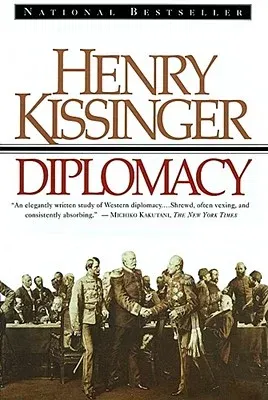In this controversial and monumental book - arguably his most
important - Henry Kissinger illuminates just what diplomacy is. Moving
from a sweeping overview of his own interpretation of history to
personal accounts of his negotiations with world leaders, Kissinger
describes the ways in which the art of diplomacy and the balance of
power have created the world we live in, and shows how Americans,
protected by the size and isolation of their country, as well as by
their own idealism and mistrust of the Old World, have sought to conduct
a unique kind of foreign policy based on the way they wanted the world
to be, as opposed to the way it really is. Spanning more than three
centuries of history, from Cardinal Richelieu, the father of the modern
state system, to the "New World Order" in which we live, Kissinger
demonstrates how modern diplomacy emerged from the trials and
experiences of the balance of power of warfare and peacemaking, and why
America, sometimes to its peril, refused to learn its lessons. His
intimate portraits of world leaders, including de Gaulle, Nixon, Chou
En-lai, Mao Tse-tung, Reagan, and Gorbachev, based on personal
experience and knowledge, provide the reader with a rare window on
diplomacy at the summit, together with a wealth of detailed and original
observations on the secret negotiations, great events, and the art of
statesmanship that have shaped our lives in the decades before, during
and since Henry Kissinger was himself at the center of things. Analyzing
the differences in the national styles of diplomacy, Kissinger shows how
various societies produce special ways of conducting foreign policy, and
how Americans, from the very beginning, sought a distinctiveforeign
policy based on idealism. He illustrates his points with his own
insights and with examples from his own experience, as well as with
candid accounts of his breakthrough diplomatic initiatives as Nixon's
foreign policy partner. Informed by deep historical knowledge, wit, a

